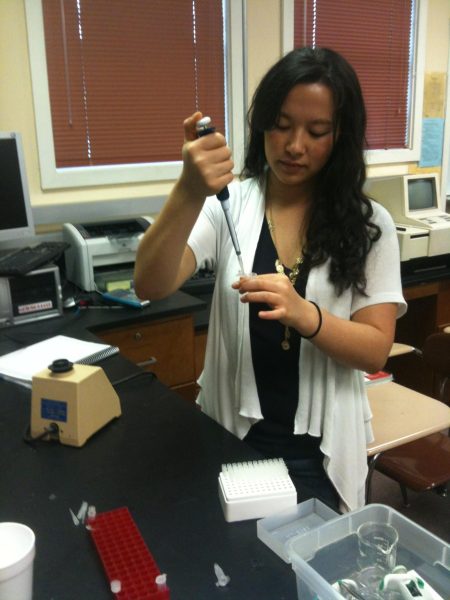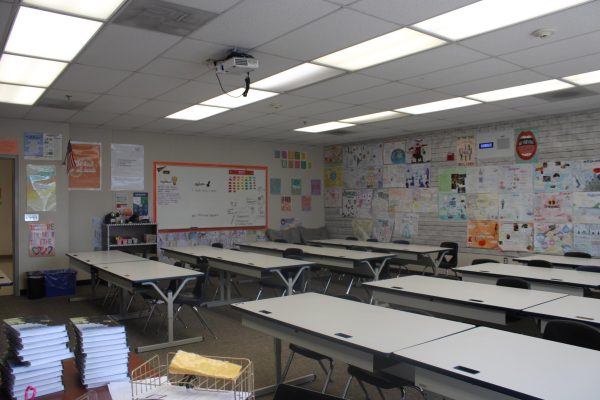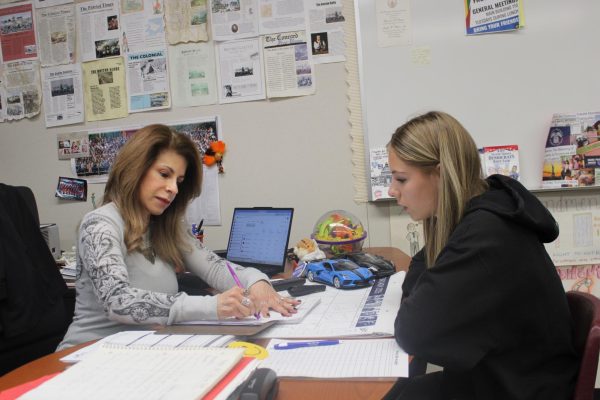CollegeConnect helps district students earn college credits
Pilot program lets students take classes at DVC
The San Ramon Valley Unified School District and Diablo Valley College recently partnered to pilot CollegeConnect, a district-wide program that will allow 60 qualified incoming juniors, with 15 from each school, to earn high school and college credit concurrently.
Participating students of this dual enrollment program will be able to take four additional semester courses at the DVC campus over the course of their junior and senior years while opting for a shortened high school schedule to accommodate that course extension.
The typical schedule of a CollegeConnect student would consist of four high school class periods and two college courses in place of their fifth and sixth periods.
Application decisions were set to be announced by the school district by May 27.
“[This program is very unique in that] students will be taking a true college course with true college professors,” said Dougherty Valley High principal Daniel Hillman at the CollegeConnect parent informational meeting on May 4. “It will be a truly valuable experience for them.”
As CollegeConnect is still relatively new to the Bay Area, the variety of courses offered at DVC for the first year are limited to Psychology 101, Film 106, and English 116/118 or 122/123, which will all be graded on a 5.0 scale with exception for English 116/118, which will be based on a regular 4.0 scale.
A placement test will determine enrollment in the 116/118 high school level English course or the 122/123 college level English course.
In future years, students will enjoy a freer selection process through working individually with a DVC counselor to tailor a set of courses specific to their interests and career pathways.
“This is such a great opportunity for students to experience what it’s like to learn in a college setting while exploring their interests,” said Cal guidance counselor Cheryl Youngberg. “It’s a great transition for those who plan to continue their education at a community college or attend a four-year college.”
Additionally, Counseling 120, a non-graded introductory support course, will be taken by CollegeConnect students during the summer for them to learn how to be successful in a college level course. Support groups will also be meeting throughout the school year.
“What really makes this program stand out is that it offers much more support [for its students] in comparison to other dual enrollment programs,” said district academic planning director Jason Reimann.
Students also were appreciative about this additional assistance.
“I think it’s great that they are giving extra support in preparation for the difficult courses, which other dual enrollment programs don’t offer,” said sophomore Isha Patel, a CollegeConnect applicant.
CollegeConnect courses also provide beneficial academic and financial incentives. Credits offered by these courses are aligned with the Intersegmental General Education Transfer Curriculum (IGETC) requirements and are accepted by all Universities of California (UC) and California State Universities (CSU).
Essentially, students who commit to this program for the entire two years could complete 30 units of credit equivalent to finishing their first year of college.
“The possibility of skipping the first year of college really influenced my choice [to apply],” said sophomore Leqi Zeng.
However, students have also expressed concerns related to the planning and organization of this program.
“I don’t really see the point in it. They have such limited choices and the times basically interfere with all my after school job and activities,” said sophomore Michaela Davis.
To address this issue, Reimann and his team are currently working on ways to be more inclusive of students who have a large number of extracurricular activities. They are also looking into incorporating Career Technical Education (CTE) courses, which will provide students with the skills, knowledge, and training necessary to succeed in particular career pathways.
Other students feel there is no real reason to participate when AP courses are already available at high schools and serve the same purpose as any other college level courses.
Applicants have found that the application process was confusing in regards to accessing information and deadlines, which were centered around the AP testing week.
In response to apprehensions circulating around that some colleges may not appreciate a program that takes away a year of its tuition income, Youngberg explained that college acceptance rates for students who have been part of a dual enrollment program have actually been high.
Despite these concerns, Honors Precalculus teacher and concurrent DVC professor Gary Triebwasser said, “I think it’s great that it allows highly motivated students to take on more rigorous courses on the college level, but then again, highly motivated students could also take classes at DVC with a full high school schedule on their own, if they were so inclined.”
At any rate, students willing to take on the challenge of college level courses can expect to have a greater range for academic exploration.
“It certainly gives students a leg up on advanced college courses,” said Reimann.
Furthermore, CollegeConnect students can choose to either apply to any college as an incoming freshman and decide how they want to use those credits, or they can continue for one more year at DVC and apply for a four-year college as a junior, which makes the acceptance process less competitive.
“This is really a new step forward in terms of partnering with the community college, and we are excited to see how this [program] will pan out in the coming years,” said Hillman.




